As technology reshapes many areas of life, artificial intelligence (AI) is increasingly present in education – both globally and in Vietnam.
Associate Professor Dr. Tran Thanh Nam, Vice Principal of the University of Education (VNU Hanoi ), said: “According to a survey conducted by Ford in June 2024, 65% of teachers have started applying AI in teaching, and 55% of them assessed that AI contributes to improving teaching quality and reducing administrative pressure.”
Developing an AI competency framework for learners
Circular No. 02/2025/TT-BGDĐT of the Ministry of Education and Training : Regulations on the Digital Competency Framework for Learners, in which AI is identified as one of the six core competencies that need to be developed. Developing AI competencies for learners needs to start in the classroom, with teachers at the center. Teachers are not only the ones who impart knowledge but also the ones who guide, inspire thinking and create an environment for students to use AI proactively and responsibly to improve the quality of education.
Specifically, for learners, AI helps collect and process learning data, thereby developing a personal educational trajectory, creating an optimal environment to maximize learners' potential; improving learning outcomes through assessing learning achievements using many methods and indicators. In addition, AI contributes to enhancing connections, supporting learners in forming a worldview, developing cognitive, social and emotional skills, and helping to identify, predict and prevent early crisis situations that affect learners' morale. For teachers, the most positive and noticeable factor is that AI helps develop expertise and self-analysis, increase work efficiency and save time.
However, the application of AI in education also poses many challenges, especially in terms of ethics including: privacy, protection and use of learner data; preventing discrimination based on gender, race, socio-economic characteristics and differences in ability levels; preventing the spread of social and cultural prejudices...
“Developing legal and ethical frameworks for AI applications in education is vital to ensure that this technology is used responsibly, fairly and humanely. AI is not only a technical support tool but also has a profound impact on the thinking, behavior and values of both teachers and students. As teachers, knowledge about AI ethics is very necessary and important, teachers will be the ones to guide and help students understand the meaning, potential limits and illusions of AI” - Associate Professor, Dr. Tran Thanh Nam emphasized.
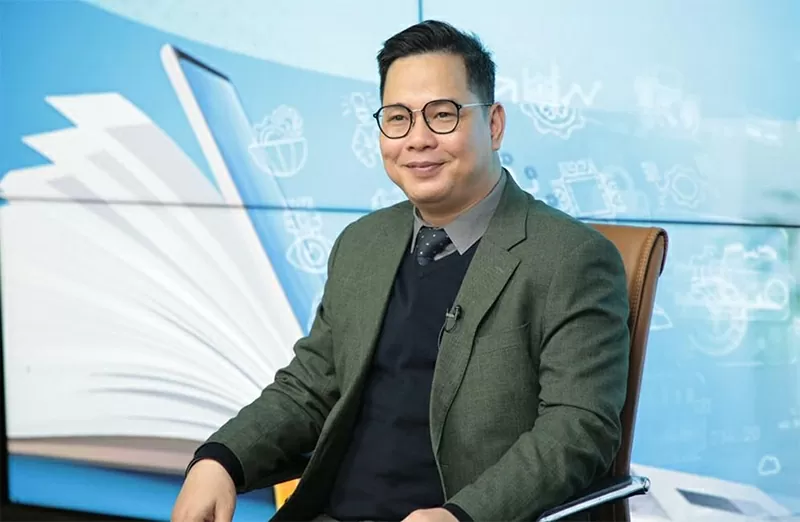 |
| Associate Professor Dr. Tran Thanh Nam expressed concerns about AI ethics in education |
Responsibility and ethics needed when using AI in education
The application of AI in education is an inevitable trend, however, AI also has many potential risks such as the use of non-transparent data or creating biased results. According to Associate Professor Dr. Tran Thanh Nam, “Managing AI risks in education requires a combination of ethical understanding, close supervision and responsible education. Teachers, with a central role, not only help minimize risks but also guide students to use AI effectively, ethically, and creatively, thereby preparing them to become responsible digital citizens in an increasingly digital world.”
According to the UNESCO 2024 AI Competency Framework, UNESCO takes a human-centered approach to AI in education, emphasizing the enhancement of human capabilities and the promotion of social justice, sustainability, and human dignity. This is in line with the principles set out in the UNESCO Guidelines on Generative AI in Education and Research and the 2021 Recommendation on the Ethics of Artificial Intelligence. These frameworks provide a much-needed roadmap for countries to develop informed, ethical, and inclusive AI education strategies.
Many international organizations such as the OECD, the European Union, and countries such as the US, China, Australia, etc. have proactively developed recommendations and guidelines on AI ethics. However, according to a report by TeachAI in September 2023, only about 7% of education systems in the world have issued guidelines related to the use of generative AI. Only a very few countries have separate policies on ethics for AI in education, while according to a report by The Center for Democracy and Technology, 81% of parents and 72% of students believe that specific guidelines to help students use AI properly in their studies are necessary.
In Vietnam, training institutions and educational organizations have begun to provide specific guidelines for teachers to truly take on a central role in the digital education era. British University Vietnam (BUV) has established regulations on the use of AI for lecturers and students. Vietnam National University, Hanoi plans to develop a joint statement on strategy and approaches to AI in research and administration activities; actively coordinate with educational units such as the Vietnam Institute for Advanced Study in Mathematics (VIASM), Khan Academy, and the Vietnam Institute of Information and Communications Technology (FISU Vietnam) to organize seminars on the use of AI in education.... At the national level, the University of Law, Vietnam National University, Hanoi, is implementing a research project to develop a set of principles and some guidelines for responsible AI development in Vietnam.
In an effort to support teachers in adapting to technology, AI courses for teachers, completely free of charge, have quickly emerged, such as the course “AI in Education” by Khan Academy Vietnam, which was adapted from the course “AI for Education” by prestigious organizations such as Code.org, Common Sense Education, aiEDU. The course aims to provide a foundation on how to apply AI effectively and ethically in the classroom, emphasizing the role of teachers in guiding students to use AI for the right purpose, responsibly and humanely in the digital age. Agreeing with the goal of the above course, Associate Professor Dr. Tran Thanh Nam shared, “In the world of generative AI, especially in the process of risk management, teachers themselves will play a central role by upgrading themselves with AI ethics to understand how AI works, identify potential risks, and evaluate the fairness of input data.”
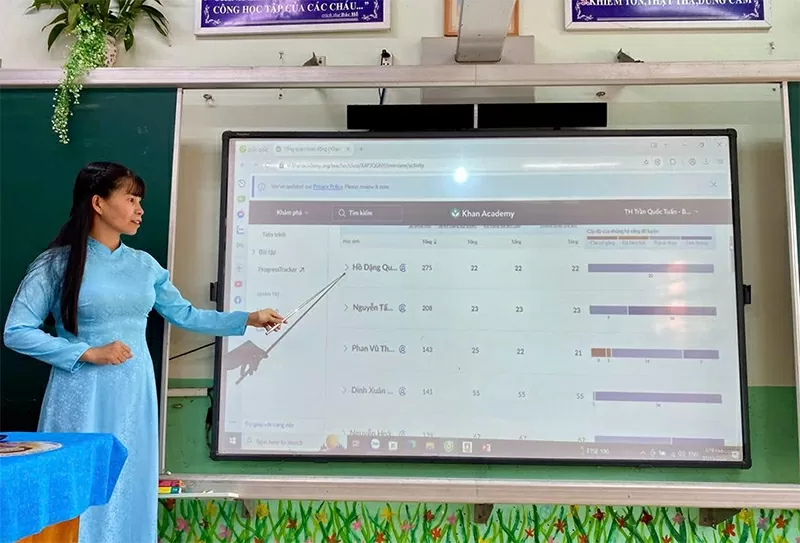 |
| Teachers actively apply technology in teaching and learning. |
In the context of the Ministry of Education and Training encouraging students to self-study, AI can completely become a learning assistant for teachers to guide students to master technology, firmly entering the era of reaching out with the courage to think, speak, do, take responsibility, and sacrifice for the common good, to become useful people for society. Mr. Do Ngoc Minh, co-founder of Khan Academy Vietnam, Director of the Vietnam Open Educational Resources Program (VOER) affirmed: "Artificial intelligence can act as a personal tutor, helping to analyze the strengths and weaknesses of learners and provide a suitable roadmap. Technology helps connect learners with knowledge communities around the world, creating self-study motivation and helping to maintain lifelong learning."
Source: https://baoquocte.vn/xay-dung-dao-duc-khi-su-dung-ai-trong-giao-duc-giao-vien-dong-vai-tro-trung-tam-311988.html




![[Photo] 60th Anniversary of the Founding of the Vietnam Association of Photographic Artists](/_next/image?url=https%3A%2F%2Fvphoto.vietnam.vn%2Fthumb%2F1200x675%2Fvietnam%2Fresource%2FIMAGE%2F2025%2F12%2F05%2F1764935864512_a1-bnd-0841-9740-jpg.webp&w=3840&q=75)
![[Photo] National Assembly Chairman Tran Thanh Man attends the VinFuture 2025 Award Ceremony](/_next/image?url=https%3A%2F%2Fvphoto.vietnam.vn%2Fthumb%2F1200x675%2Fvietnam%2Fresource%2FIMAGE%2F2025%2F12%2F05%2F1764951162416_2628509768338816493-6995-jpg.webp&w=3840&q=75)


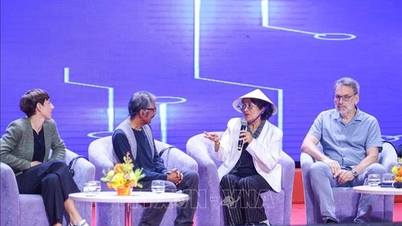

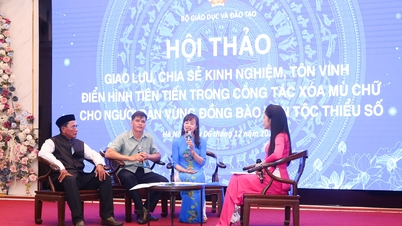

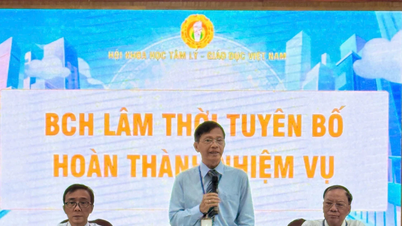

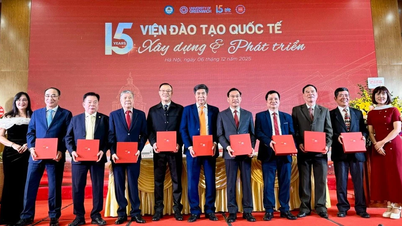
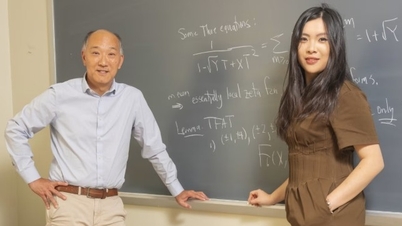








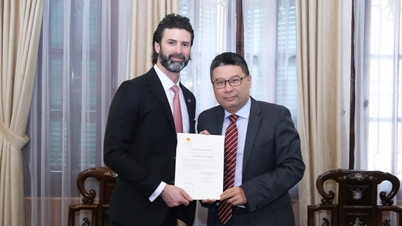


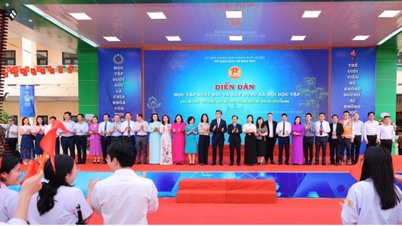




















































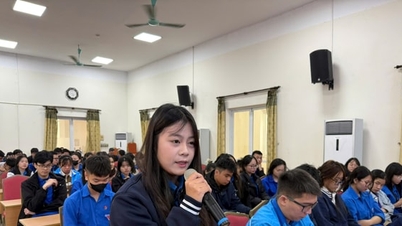




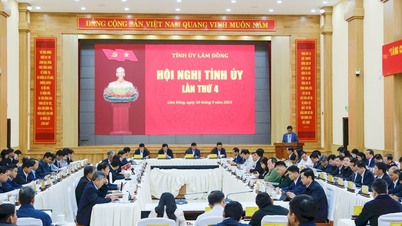
















Comment (0)